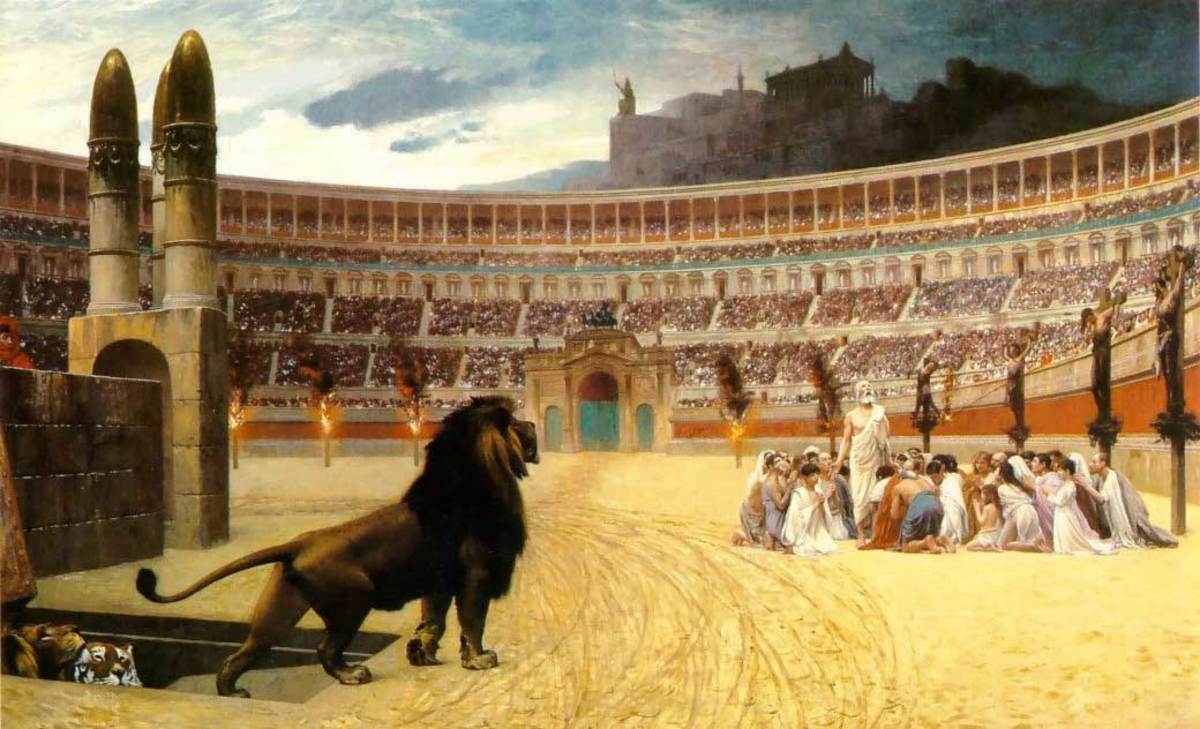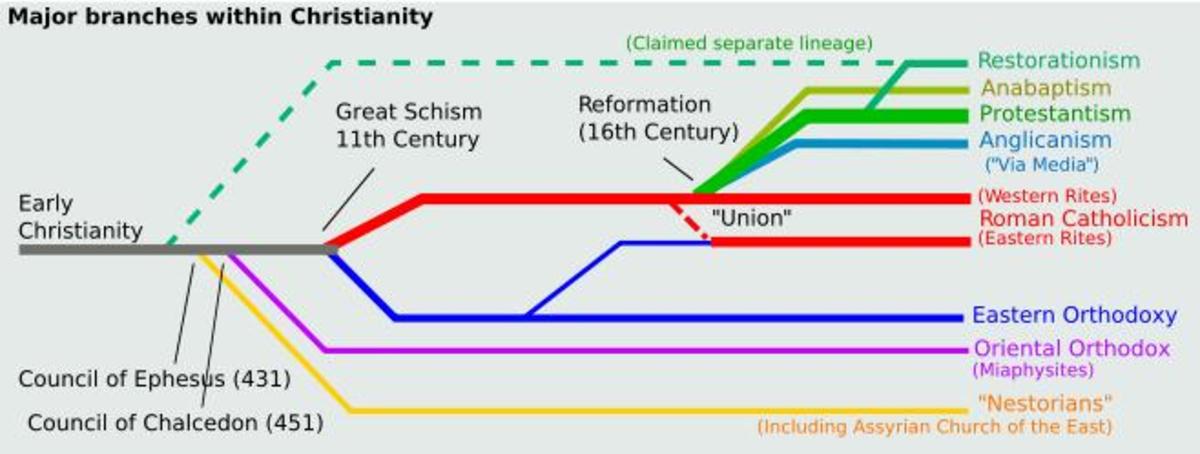Regular, Normal Christianity ~ God


I started this series of "Regular, Normal Christianity" articles by setting forth my intent, and disclaimers (that I am sharing my own understanding and not asserting that I am THE arbiter of what ought to be counted as authentic Christianity), in the initial and hub "Regular, Normal Christianity ~ The Premise And Definitions".
I then began our examination of contemporary American Christendom in light of historic and Biblical Christianity by presenting the first article, on the reliability of "The Bible". With this article we examine the concept of "God".
Please see the bottom of this page for a list and links to the previous and subsequent articles.


How Do We Go About Asking This First And Most Significant Question - What Is God?

Christians believe that if man is going to know anything about God, that knowledge must come from God, not from our own inner musings about what we imagine or surmise He must be like
Of course, the great foundational idea of any religious or spiritual consideration is, what is our perception and standing verdict regarding the essential idea of God . . . what or who is He, what is He like, what is our connection or relationship to Him, etc. And preliminary to our foundational idea of God is, on what do we base our resulting perception and standing verdict of God on, where do we go, what manner of information do we give our attention to? The authentic Christian answer to this preliminary question is why I started this series of articles with a consideration of "The Bible" rather than starting with, what might seem to many like the obvious starting point, the idea of God itself.
This matter of where we gather our ideas about God, I suppose, has always been a point of division among those attending to spiritual beliefs and supposition, but it certainly is a dramatic divide today in our contemporary American culture. There are those who vigorously insist, nearly violently demand, that eternal spiritual truth cannot be found in a book but can only be discovered as one looks inwardly to find the divine spark or force or self that is inside each of us . . . they promote a dreamy and agreeable notion that there is spiritual light in every religious tradition and that each much find his own path to God, by looking inside themselves. However, the flaw in their multi-path religion is that they are not agreeable at all, but rather exhibit a vehement disdain, for the path of finding God in the Bible - Jesus, their own version of Jesus, is ok, but the Bible, Paul, Christianity, etc, is the one path void of light and leading no one to spiritual truth.
This great divide of what we count as a valid source to provide trustworthy information is itself informative of our very initial steps toward what ideas of God we embrace. The Christian counts God to be a wholly different being than himself, so vastly different in, not merely degree, but in type, that we posses no capacity to find or discover Him . . . to the Christian, looking inside himself to learn about God and what He is like would be like a carrot looking inside itself to gain an understanding of humanity - no matter how deeply and earnestly that carrot would look it simply does not the capacity to comprehend what men are like. Christians believe that if man is going to know anything about God, that knowledge must come from God, not from our own inner musings about what we imagine or surmise He must be like . . . God must determine to reveal Himself to us or we are left with a multitude of empty man-concocted religions that divide and harm rather than unite and mature us.
I address the circumstance of this multi-path notion of religion in these articles designed to review contemporary American Christendom in light of historic, Biblical Christianity because I fear this, 'find God within you' and 'every religion has some light' prescription, has influenced contemporary American Christendom thinking more than might be readily observable. With that in mind, a couple of essential ideas about God that the Bible presents and that historic Christianity has understood the Bible to present that I find generally neglected by much of what is identified as 'Christianity' today include:
-
1. God is a being, not a force, and is separate from all else.
God created the trees and rocks - He is not the trees and rocks, nor is He in the tress and rocks. When the Bible tells us of the birth of Jesus we gain this great insight; God begat Jesus - He made man. The original Greek informs us that 'begetting' is producing something from something else, so that what is produced (or begotten) is of the same essence as what produced it . . . so, while a grape begets wine, a man makes the bottle to put it in. God created, or made, all that exists, the world and men are not pieces of God or aspects of the divine, etc - they are things that God made, God alone is God and everything else that exists is not God (that is precisely why the atonement was needed, why not only men but even creation itself benefits from Jesus the mediator and His finished work - but we'll get to that in upcoming articles).
-
2. Space and time were created by God.
When God determined to create man and a universe to put him in, He first had to create space to put the universe in and time for it to exist in. Before all else there was only God, He had to make space and time to put His creation into. This means, of course, that God is not at all bound by any laws or conditions of existing in space and time, because He exists in eternity, outside of space and time. If this seems a bit too conceptual or difficult to comprehend, of course it is - we exist in space and time and can't possibly grasp the reality of existing outside of space and time.
The idea that God is not bound by space but is everywhere at the same time is not beyond our ability to, sort of, imagine . . . we say God is here with us and over there we believers in China and down the road at that Bible study, etc, all at the same time. The idea that God is not bound by time is a bit more difficult for us to imagine. However, without trying to figure it out, leaving for a moment our need to accept only what we can explain, when we go to the Bible we find this idea again and again . . . "one day is as a thousand years to the Lord", "I am the alpha and omega, the beginning and the end, the first and the last", "Before I formed you in the womb I knew you, and before you were born I chose you", etc.
Our difficulty, I think, is that while space is a material reality (we can see our hand in the space right in front of us, we can see the tree in the space over there in the yard, and we can imagine the reality of the store blocks away, etc) time is not so observable, it is itself more a concept than an actual thing. So, we can, sort of, grasp the idea of God being everywhere at the same time, but we can't even say 'everyWHEN' at the same time without saying "at the same time" which makes the phrase nonsensical - the truth though, however beyond our capacity to grasp or articulate, is undeniably presented in the Bible.
We will get to aspects of God's attributes and character (that He is omniscient and holy, etc) as we move on in these articles to look at man, sin, the atonement, etc, but for now; while much of contemporary American Christendom seems to view God as a 'co-pilot', a resource we can turn to if we need Him, a pal always ready to encourage and comfort us, etc - historic, Biblical Christianity presents God as the infinite, eternal divine Spirit who created all that is and did so according to His own plan and purpose, and so, our part is not to run to Him when we're troubled, but to submit fully to His care and seek to serve Him as He superintends His creation bringing about all things according to His own will.
please share your comments below ~


Preface. "Regular, Normal Christianity ~ The Premise And Definitions"
1. Regular, Normal Christianity ~ "The Bible"
2. Regular, Normal Christianity ~ "God"
3. Regular, Normal Christianity ~"Jesus of Nazareth"
4. Regular, Normal Christianity ~ "The Trinity"
5. Regular, Normal Christianity ~ "Man, Sin, And Spiritual Death"
6. Regular, Normal Christianity ~ "The Covenant, The Promise, The Covenants, And The Gospel"
7. Regular, Normal Christianity ~ "The Atonement - Law & Grace"
The Christian & Private Study - A 'How To' Guide
-
'How To Study The Bible'
-
'The Christian Library'
-
'Christian Life Lessons'
"Is Believing In God A Ridiculous Thing?"
"The Most Married Man In America"
please share your comments below ~


Next ~ we will continue, in an orderly manner, examining how Jesus of Nazareth is perceived, the concept of the Trinity, the atonement, the gospel message, the church, etc, etc . . . once we cover these essential Christian teachings from an orthodox historic and Biblical perspective, we will examine some of the specific ideas popular contemporary American Christendom advances.
please share your comments below ~


"Warm affections, without knowledge, can rise no higher than superstition; and that knowledge which does not influence the heart and affection, will only make a hypocrite"
~ John Newton

Please do visit my other hubs ~
The Saturday Matinée
"A Preview"
1. "Mysterious Island"
2. "Horror Of Dracula"
3. "This Island Earth"
LOGISMOS
1. "The Seasons"
2. "Why Do We Write?"
General Fussing About ~
1. "Vampires"
2. (coming soon)
Miscellaneous
"The Best Halloween Movie"
"Do I believe in love at first sight? Yes - sort of . . ."
"Leonard - The Best Dog Ever"










